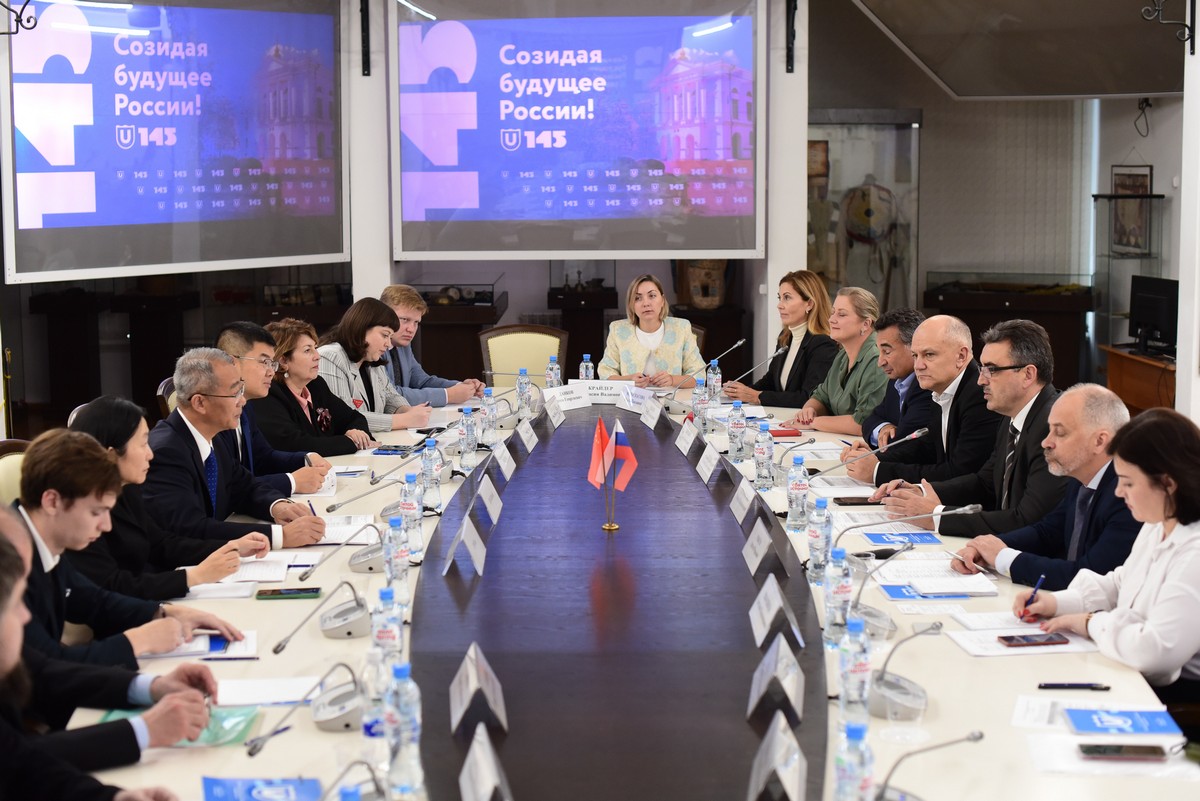A delegation from the Embassy of the People's Republic of China recently visited Tomsk. This marked the first visit to Russia by Embassy officials supervising cooperation with other countries in education. At Tomsk State University, the guests participated in meetings with university management and the TSU Confucius Institute, university staff, and students.
The delegation was comprised of Cao Shihai, Minister-Counsellor (Education) of the Embassy of the People's Republic of China in the Russian Federation; Deng Ying, First Secretary of the Embassy's Education Department; and Wang Zhe, First Secretary of the Embassy's Education Department.
“The Chinese side had to choose between several cities for their first visit. They were attracted to Tomsk because of the number of universities and the fact that we have a Confucius Institute. By the way, it was awarded as the best Confucius Institute in 2016, a lasting achievement. In addition, His Excellency Ambassador Li Hui visited us not so long ago, and Chinese officials regularly visit us. Also, TSU and University of Tomsk are steadily increasing the number of Chinese students and agreements with the People's Republic of China, including with its universities,” said Artyom Rykun, TSU Vice-Rector for International Affairs.
The purpose of the visit was to meet with the TSU rector and management, discuss the current cooperation of Tomsk State University and Chinese universities, and exchange views on deepening cooperation in science and education.
Eduard Galazhinsky, TSU Rector; Artyom Rykun, Vice-Rector for International Affairs; Evgeny Lukov, Vice-Rector for Academic Affairs; Svetlana Rybushkina, head of the International Relations Department; and representatives of TSU faculties and institutes Confucius Institute, Faculty of Physics and Engineering, Institute of Economics and Management, Faculty of History and Political Studies, Faculty of Chemistry, Institute of Applied Mathematics and Computer Science, Faculty of Philology, Faculty of Physics, and Faculty of Foreign Languages met with the guests.

“The delegation learned a lot about the university and met people who are responsible for cooperation with Chinese partners, including the heads of our joint educational programs. First, we informed our embassy colleagues about such programs. Secondly, we will be able to get their support if we need it. Such support can include visa issues and assistance in pushing some issues at the ministry level,” Artyom Rykun noted.
Cooperation between TSU and PRC universities includes bilateral educational and research projects. Thus, we have already signed 18 agreements on cooperation in education with various universities, such as Dalian Polytechnic University; Shenyang Ligong University separately and along with the Headquarters of Confucius Institutes in the PRC; North China University of Science and Technology; China University of Petroleum; Chongqing University of Arts and Sciences; University of Science and Technology Beijing; Sun Yat-sen University; Beijing University of Chemical Technology; Beijing Institute of Technology; and Northeastern Petroleum University, as well as China Education Development Foundation, which coordinates the global network of Confucius Institutes.
TSU is about to sign another joint project with Shenyang Ligong University. Our partner universities plan to train highly qualified personnel in physical education and professional physical training, theory and methodology of sports, health, and adaptive physical education. TSU and Yellow River Conservancy Technical Institute are also in the process of signing an agreement.